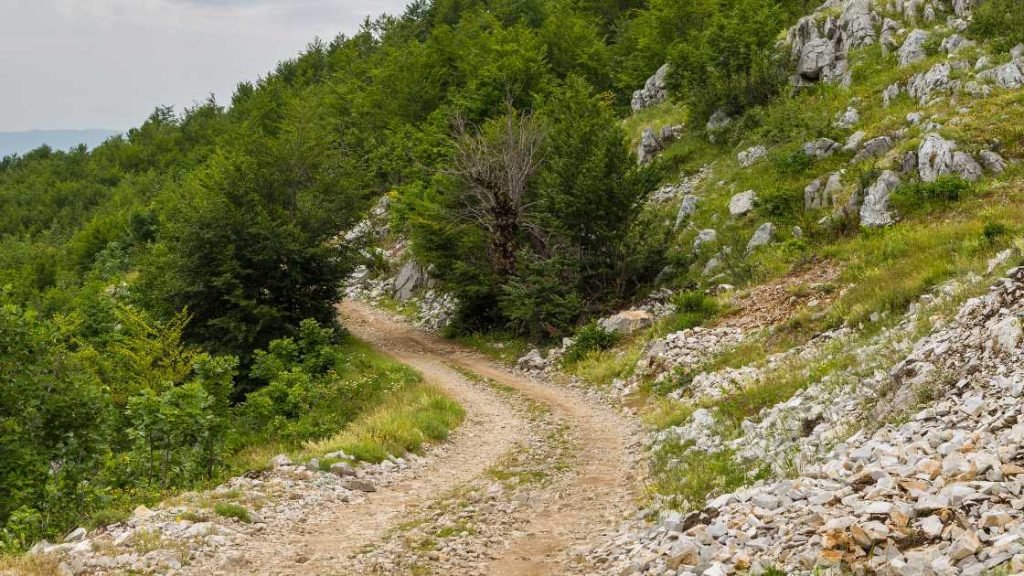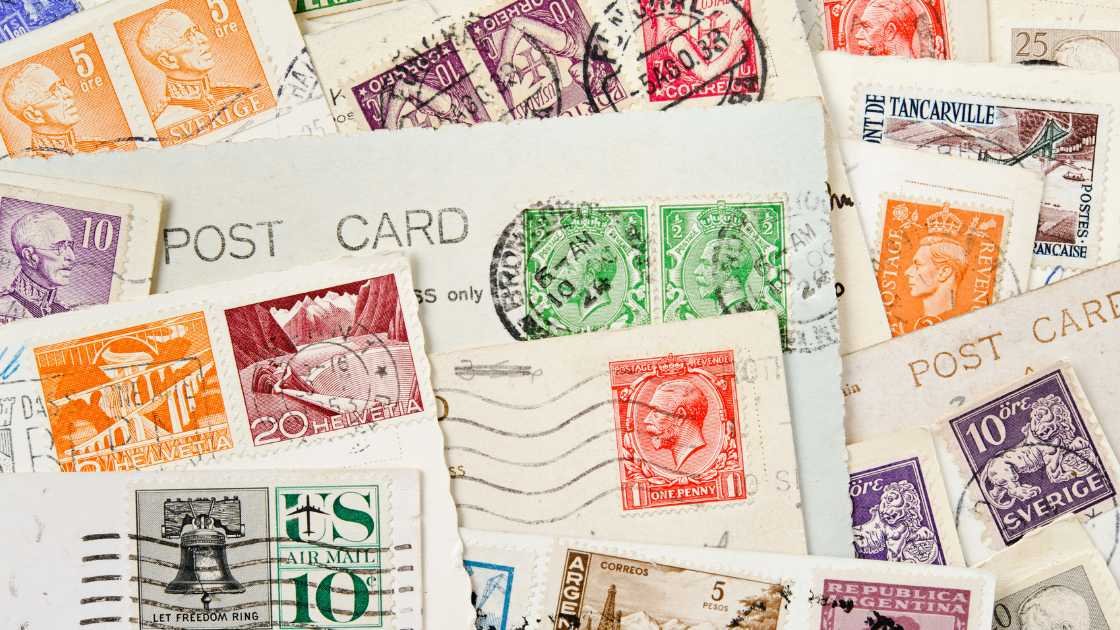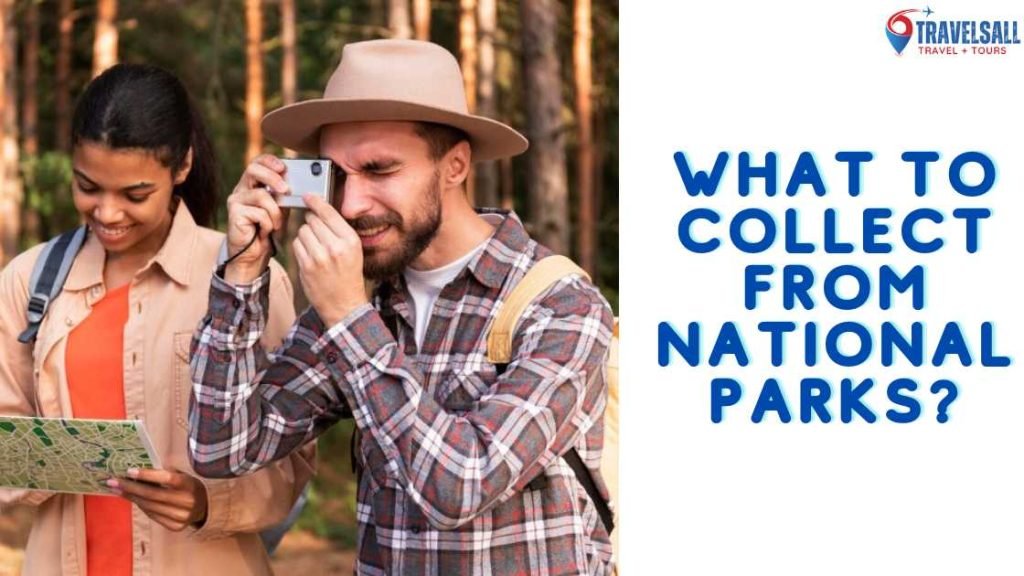Visitors can collect limited quantities of certain natural items like fallen leaves and rocks from national parks. Remove nothing that is living, attached, or culturally significant.
Visiting national parks is awesome! They’re filled with cool nature stuff and history. People like to collect souvenirs, but we need to be careful not to harm the parks. You can collect some things as long as they follow the park rules.
So, What to Collect from National Parks? Let’s find out and make sure we enjoy the parks while keeping them safe.
Remember to respect wildlife habitats and natural resources. Before picking up any natural keepsake, always check with the specific park’s regulations to avoid disrupting the ecosystem. This approach not only protects the parks but also ensures that they remain pristine for future visitors to enjoy.
When entering these treasured spaces, embrace an ethic of conservation and responsibility to safeguard their beauty and integrity.
Table of Contents
ToggleThe Lure Of National Parks

The Lure of National Parks lies in their unrivaled ability to stir the soul. These natural treasures offer a gateway to a world where beauty and quiet reign supreme.
With landscapes that span from majestic mountain ranges to lush forests, deserts to crystal-clear lakes, each park is a chapter in an unfolding story that beckons to be explored.
Natural Beauty And Diverse Wildlife
National Parks are like nature’s safe havens. They’re filled with amazing views like tall cliffs, waterfalls, and wide-open spaces. It’s a perfect place for photographers and nature lovers to capture beautiful moments.
You can take photos or make sketches to remember these special times. Plus, there’s a variety of animals, like elk and foxes, living in the parks.
Watching them in their natural homes gives you a peek into nature’s wild side. You can keep a wildlife journal or buy merchandise to help protect these animals and their homes.
Cultural Significance And Preservation
National Parks protect special places and things. They take care of nature, history, and cool stuff from the past. Some parks have old buildings or places where important events happened. When you visit, you can learn a lot about what happened a long time ago.
People work to keep these special places safe for the future. When you go to National Parks, you help with this important job. You can also get cool souvenirs like seeds for plants or help take care of a part of the trail.
Responsible Collecting
Exploring national parks is a thrilling adventure, brimming with natural beauty and historical wonders. Visitors often want mementos of their experience. Yet, taking items can harm fragile ecosystems.
Responsible collecting means taking memories without leaving a mark. Let’s explore how you can preserve these treasures for generations to come.
Leave No Trace Principles
Embracing the Leave No Trace principles is crucial. These guidelines ensure nature’s undisturbed beauty.
- Plan ahead and prepare: Know the rules of the park you’re visiting.
- Travel and camp on durable surfaces: Stick to trails and campsites.
- Dispose of waste properly: Pack out all trash, left-over food, and litter.
- Leave what you find: Observe, but do not take natural objects and artifacts.
- Minimize campfire impacts: Use a camp stove or designated fire rings.
- Respect wildlife: Observe from a distance and never feed animals.
- Be considerate of other visitors: Keep noise levels down and yield to others on the trail.
Legal And Ethical Considerations

Knowing the legal and ethical aspects is key to responsible collecting. National parks are protected areas. It’s illegal to remove natural objects or cultural artifacts. Here are some tips to stay within the law and respect park ethics:
| Action | Legal and Ethical Implications |
|---|---|
| Picking Flowers | Illegal in national parks, as it can damage the ecosystem. |
| Removing Rocks | Disturbs the natural landscape and is prohibited. |
| Collecting Wildlife | Harming or taking animals is against park policies. |
| Fossils or Artifacts | These are protected by law; removing them is a federal offense. |
Always check with local park authorities. They can provide the latest regulations and advice. Remember, the best collectible is a photo and the experience itself! By being mindful, the awe-inspiring beauty of national parks will continue to inspire us all.
Memories Over Materials
Enjoying nature at National Parks is like finding treasures. Instead of collecting things, we collect special moments. Let’s figure out how to keep those moments in pictures or other fun ways. Nature gives us lots of things, but the best souvenirs come from being creative and not hurting the environment.
Photography And Sketching
Capturing the majestic landscapes of National Parks often requires just a lens or a pencil. Photography and sketching allow for detailed preservation of the moments you encounter.
- Compose and Snap: Use your camera to frame nature’s marvels. Seek unique angles and lighting. Photos become your art gallery.
- Sketch Your Journey: Carry a sketchbook and pencils. Draw the sunrise or a blooming flower. Your sketches can transform memories into lasting visuals.
Share digitally to inspire others. Encourage appreciation for our National Parks’ beauty.
Journaling Your Experience
Penning down experiences etches them into history. A journal serves as a time capsule, encapsulating your emotions and discoveries.
- Find a Quiet Spot: Sit in solitude. Let peace influence your words.
- Reflect and Write: Document what you see, feel, and think. Note wildlife encounters, plant species, or the tranquility of a mountain vista.
Revisiting journal entries can transport you back in time. Your written stories foster an intimate bond with the places you’ve visited.
Educational Keepsakes

Visiting a National Park is an adventure filled with wonders. Each park is a treasure trove of knowledge. Collecting educational keepsakes turns a trip into a lasting learning experience. These items ignite curiosity and inspire further exploration.
Let’s describe some of the best educational keepsakes to collect.
Flora And Fauna Guides
Wildlife and plants give each park its unique character. Flora and Fauna Guides are perfect for nature lovers. These guides are compact and filled with information. They help identify different species you encounter on your visit.
- Illustrated Guides: Full-color illustrations make identification fun and easy.
- Checklist: Track the species you spot with a handy checklist.
- Pocket Size: Easy to carry on all your park explorations.
Geological And Historical Brochures
National Parks are windows into the Earth’s past. Geological and Historical Brochures tell these stories. They explain the natural and human history of the parks. Each brochure offers insights into the park’s formation and past inhabitants.
| Brochure Type | Details Included |
|---|---|
| Geological Guides | Information on rocks, fossils, and landforms. |
| Historical Timelines | Events and people that shaped the park’s human history. |
Official Souvenirs
Collecting souvenirs from national parks immerses you in the beauty of these protected places. Whether it’s a family tradition or a way to remember adventures, official mementos carry with them stories and memories. Souvenirs like park stamps, passport books, postcards, and collector’s pins not only serve as fun collectibles but also support the conservation efforts of these natural wonders. Let’s explore the keepsakes that hold the spirit of the wild!
Park Stamps And Passport Books
Park stamps and passport books are favorites among park visitors. Each park has a unique stamp that you can use to mark your visit. These stamps go into passport books, designed to catalog your travels. Here are the steps to start your collection:
- Purchase a passport book from a visitor center.
- Visit the cancellation station in each national park.
- Press the stamp onto the appropriate page of your book.
Postcards And Collector’s Pins
 Postcards offer a visual reminder of each park. They capture stunning landscapes and iconic wildlife. People love to send them to friends or keep them as a vibrant gallery of their journeys. Collector’s pins are small badges that represent each park. Let’s see why they are must-haves:
Postcards offer a visual reminder of each park. They capture stunning landscapes and iconic wildlife. People love to send them to friends or keep them as a vibrant gallery of their journeys. Collector’s pins are small badges that represent each park. Let’s see why they are must-haves:
- Display scenes and symbols unique to each park.
- Fits easily in any travel bag.
- Goes well on jackets, backpacks, and hat collections.
Start your collection today and bring home a piece of treasured land!
Authentic Artisan Crafts
Exploring national parks is not just about breathtaking vistas and thrilling hikes. It’s also an opportunity to discover unique and handmade crafts by local artisans. These treasures capture the spirit of the parks and support regional cultural heritage. When you pick up authentic artisan crafts, you hold a piece of the park’s soul and its community’s craftsmanship.
Supporting Local Artisans
Purchasing local crafts is a way to give back to the communities that surround national parks. Artisans work hard to craft pieces that reflect their culture and environment. Here are some reasons to support them:
- Stimulate local economies by buying directly from craftsmen.
- Encourage traditional skills and prevent them from fading away.
- Bring home unique mementos that have a story and a personal touch.
Cultural Artifacts And Crafts
National parks serve as the backdrop for a rich variety of cultural artifacts and crafts. These items are not just souvenirs; they are pieces of history and culture. Some park visitor centers even feature exhibits or demonstrations to showcase these skills. Look for these popular artisan crafts:
| Craft Type | Description | Common Materials Used |
|---|---|---|
| Weaving and Textiles | Patterns and designs passed down through generations | Wool, cotton, natural dyes |
| Pottery | Vessels shaped from local clays and fired traditionally | Clay, native paint, sand |
| Jewelry | Handcrafted pieces inspired by nature and heritage | Beads, silver, semi-precious stones |
By choosing to buy these authentic artisan crafts, you carry home a tangible reminder of your national park experience and support the preservation of local traditions.
Nature’s Gifts: What You Can Take
Nature’s Gifts: What You Can Take offers an intriguing exploration of the treasures our national parks offer. As we wander through these majestic landscapes, some of nature’s tokens are permissible to collect. Keep in mind, that national parks require us to respect their delicate ecosystems.
Fallen Pine Cones And Shells
Amidst the towering trees and expansive shores, fallen pine cones and shells can serve as charming keepsakes.
- Check park regulations first – make sure collecting is allowed.
- Look for cones and shells on trails – where they naturally fall.
- Avoid taking from the plants or animals directly – only pick up what is already detached.
Pine cones can come from the forest floor, while shells may adorn the sands. Both embody the spirit of your visit and carry the essence of the wild.
Wildflower Seeds With Permission
Bringing a piece of the park’s floral beauty home is possible with wildflower seeds, but only with prior permission.
- Seek consent – talk to a park ranger for approval and guidance.
- Harvest responsibly – take only a small number if permitted.
- Plant at home – remember to introduce these seeds to a safe environment.
Wildflower seeds embody the park’s vibrance but require responsible collecting. Preserve the splendor of these habitats for future visitors by following the rules.
Volunteering And Citizen Science
Are you a big fan of national parks? Become more than a visitor. Join the force of nature lovers who help these wonders thrive. Your love for the outdoors can mix with science. This mix is called Volunteering and Citizen Science. Learn what you can collect from national parks, apart from memories and photos, by giving back your time and effort!
Participating In Park Conservation
Park conservation is a rewarding activity. You give nature a helping hand. You keep parks beautiful for everyone. Wear your badge of honor as a park volunteer. Check out these cool tasks you might do:
- Plant trees – More green buddies in the park!
- Remove invasive species – Say bye to unwelcome plants.
- Clean trails – Keep paths neat for happy feet.
- Educate visitors – Share cool nature facts!
Ready to dig in the dirt and make friends with park rangers? They’ll guide you in the mission to protect these treasures. Embrace the adventure that is park conservation!
Collecting Data For Research
Every national park is a huge outdoor lab. Scientists need your eyes and ears. Help them by collecting data that matters. Here’s what you might do:
- Spot wildlife – Count the critters you see!
- Monitor plants – Track how they grow in different spots.
- Record weather – Is it sunny or raining? Make a note!
- Take photos – Snap pics to show how the park changes over time.
Join ongoing research projects. Schools and experts often shake hands with parks for this. They welcome you with open arms! Your findings can be a big deal. They may help protect animals and plants. Your data can even fight climate change. Grab your notebook and camera. Let’s get started on this exciting science journey!
Leaving A Positive Impact
Leaving a Positive Impact on our beloved National Parks remains an essential part of any visit. Collecting memories, not souvenirs, benefits these natural treasures and their future visitors. Understand how each gesture, big or small, can contribute to conservation and enrichment efforts.
Here are actionable ways to support and care for the parks while making the most of your adventure.
Donations And Support
Show your love for National Parks by making a donation. These funds go directly to park maintenance, wildlife protection, and educational programs. Consider these options:
- Buy an annual pass that gives you access to all National Parks.
- Shop at park visitor centers; proceeds benefit the park directly.
- Donate online through the National Park Foundation’s website.
Adopt-a-trail And Other Programs
Participating in Adopt-A-Trail or similar programs allows you to take stewardship of park trails. Your involvement can help with:
- Trail maintenance and cleanup.
- Monitoring trail conditions and reporting issues.
- Supporting habitat restoration projects.
Many parks also offer educational programs where you can learn about the area’s ecology. Volunteer for citizen science projects to aid research and conservation.
Frequently Asked Questions For What To Collect From National Parks
What Can You Collect From Every National Park?
You can collect photos, memories, and educational insights from every national park. Leave natural and cultural items undisturbed for others to enjoy.
What Should I Do With My National Park Stickers?
Display your national park stickers on your vehicle, water bottle, or travel gear. Choose clean, smooth surfaces for best adhesion and show off your visits to these treasured locations.
What Can You Do With National Park Patches?
National park patches can be collected as souvenirs, displayed on backpacks or clothing, used to commemorate visits, or given as gifts to enthusiasts.
Who Gets Money From National Parks?
National parks generate revenue for government bodies responsible for their management, like the National Park Service in the United States, through entrance fees, permits, and concessionaire payments.
Conclusion
Exploring national parks can be unforgettable. Remember, leave nature undisturbed and only collect memories, photos, and authorized items. Cherish these mementos as eco-friendly tokens of your journey. Embrace the parks’ beauty, preserving it for generations to come. Safe travels and happy collecting!



